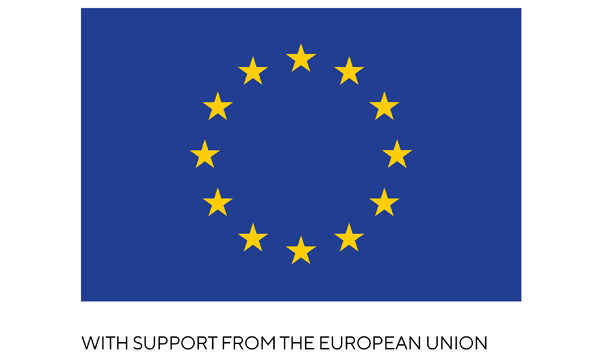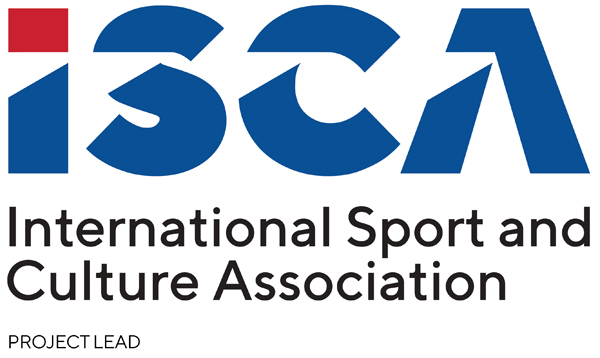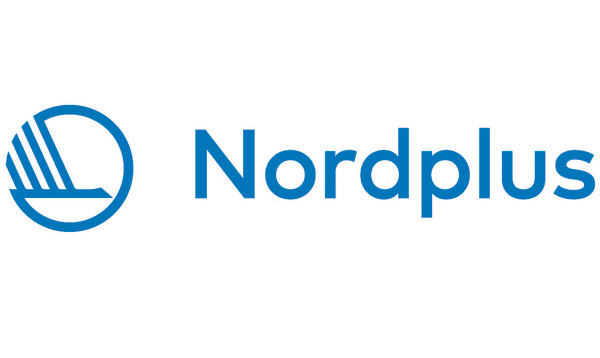Sporting community rallies to support Icelanders displaced by volcanic eruption
05/03/2024UMFÍ, Iceland

A volcanic eruption in the town of Grindavík, Iceland, forced an entire municipality's residents to evacuate their homes in November 2023. The evolving scenario is ongoing, with the anticipation of another volcanic eruption still looming over Grindavík. This presents a unique challenge as we navigate the concept of having 'refugees' within our own country, so at UMFí we are intertwining our IRTS pilot project with the real-life circumstances of displaced individuals.
We are helping children from Grindavík participate in various sports teams across different towns, training individually and meeting weekly to practice together, fostering unity among the town's residents. We are also collaborating closely with government authorities to strategise integrating an entire town with sports clubs in the capital, Reykjavík, and neighbouring areas.

Pictured above: Earthquake in Grindavík, Iceland
IRTS Nordic pilot action highlights/results
In Grindavík, there were about 4,000 residents, including 500-600 children aged 6-15 years. When the eruption started near Grindavík in November 2023, the town had to be evacuated rapidly. In one night, housing had to be found for all 4,000 residents while keeping track of where each person went.
The sports community in Iceland banded together and focused on helping the town's residents adjust to this new reality. Authorities and all those involved collaborated to assist the residents of Grindavík, especially after the eruption occurred near the town. The Grindavík municipal offices relocated to vacant office space in downtown Reykjavík, originally intended for the Iceland University of the Arts. These offices now serve as the municipal offices for Grindavík residents. Meetings of local governance are held there to maintain a semblance of order as if the offices were still in Grindavík.
As part of the sports movement project, meetings were conducted with authorities, the Grindavík municipality staff, the town's sports club personnel, community centre staff, and representatives of nearby municipalities. Discussions were also held with schools, community centres, recreational facilities, and various public bodies in the communities receiving people from Grindavík.
The project was successful. Sports clubs from all over the country invited children and young adults from Grindavík to participate in training sessions free of charge. Athletes of all ages were welcome to train with clubs in the areas where they relocated. In Reykjavík, athletes practiced with neighbourhood clubs in the capital region.
The role of UMFÍ was to coordinate and facilitate communication and cooperation between authorities, municipalities, and sports clubs. Among other tasks, UMFÍ supported and assisted the board of the Grindavík Youth Club in its work, aiding them in managing the aftermath of the crisis that all Grindavík residents were going through. For example: When the eruption occurred in November and the town had to be evacuated, the society's executive director was relatively inexperienced.
Therefore, a process was initiated to appoint a new director. This was one of many challenges faced by the board, staff, and athletes of the Grindavík Youth Club. UMFÍ did everything in its power to support the organisation, such as providing the board with space in UMFÍ service centres and various other forms of aid.
UMFÍ mediated various matters and helped find facilities in sports halls of nearby municipalities for Grindavík's sports teams, such as the soccer team and basketball team. There were eleven divisions, including both boys' and girls' basketball and six divisions for boys' and girls' soccer. Athletes in individual and less popular sports (combat sports and recreational sports, for example) found it easier to secure facilities for sporting activities.
Training fees for athletes and the structure of their activities remained unchanged from before. Athletes paid for training in Grindavík. However, they did not pay for training with sports clubs they joined. Discussions have been held to have the Icelandic government cover the rent of sports facilities for training and other events.
When the town was evacuated in November 2023, it was done with a very short notice. Residents of Grindavík could only take the essentials when they moved and had to go by car. Sports attire was not among the priorities, and many left theirs behind in the town. UMFÍ assisted the Grindavík Youth Club in publicising the need for various sports gear, such as shoes, shorts, jerseys, equipment, and more in the first few days after evacuation when people couldn't return due to the danger.
Among UMFÍ's numerous tasks related to the eruption in Grindavík and the issues faced by athletes, organising bus trips for the members of the Grindavík Youth Club was one of them. The bus picked up children and youth from what was called a gathering school and transported them to sports workouts with many sports clubs in the capital region.

Pictured above: "We are Grindavík", UMFÍ
UMFÍ received much praise and gratitude from the residents of Grindavík for their assistance. UMFÍ, as the national association for youth clubs, was present and it was beneficial to seek help from UMFÍ staff. The challenges faced by the residents and athletes from Grindavík were complex but likely familiar in similar circumstances. To us at UMFÍ, it seemed as if people were in a crisis for several weeks after the calamity struck. People had difficulties retaining information from UMFÍ and had to be reminded frequently. This was especially noticeable in the weeks following the evacuation of Grindavík.
The Grindavík Youth Club is the heart of the town's residents. The club unites residents of various ages, so it was important to maintain its operations for as long as possible. Grindavík residents, who had moved here and there, utilised sports, training, and competitions to meet and discuss matters. There has been great solidarity among the people of Grindavík.
As time has passed since Grindavík residents had to move away from their homes, more have come to terms with the situation and potential future changes. One aspect that has been discussed is the decrease in athletes from Grindavík, with a significant drop in sports participation. After the soccer season ends next summer, the club will be reassessed. More families may put down roots in the towns they moved to, children from Grindavík may stop training together, integrating into their new lives.
Therefore, it is possible that the story of the Grindavík Youth Club may come to an end in the next few months.

Sports clubs are the heart of the community
Our lesson from the IRTS project is that participation in sport matters immensely. In the case of athletes at the Grindavík Youth Club, the sports club is the heart, uniting townspeople both in the spectator stands and on the sports field. Sports, training sessions, and competitions provide a platform for people to meet, discuss, seek support from each other, and assist one another.
The conclusion is that, no matter how unbearable and challenging people's circumstances may become and how significant the problems may seem, most can be solved through unity - often with others. This is what the people of Grindavík do on the sports field.
Photos: UMFÍ
Read more stories from the IRTS Ukraine-Nordic project on our Updates page.




